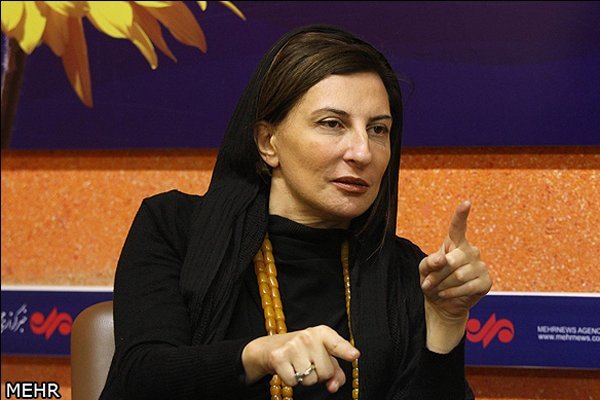U.S. failed to fulfill its aims in Mid-East: Turkish expert

TEHRAN _ Professor of political science, Istanbul University Nuray Mert, believes the U.S. and its allies failed to fulfill their regional aims to disintegrate Middle East.
After recent meeting between foreign ministers of Iran, Turkey and Russia in Antalya, the leaders of the three countries met at a crucial presidential summit in Sochi on Nov. 22 to discuss the political future of Syria, amid hope that the civil war is coming to an end and victory against jihadist groups is imminent.
Russian President Vladimir Putin hosted President Recep Tayyip Erdogan and Iranian President Hassan Rouhani in the Black Sea resort town after a series of trilateral political and military meetings on Syria.
Increasing current cooperation between Iran, Turkey and Russia despite all their differences on the regional issues and the reasons behind it was discussed in an interview with Dr. Nuray Mert, professor of political science, Istanbul University.
Commenting on the increasing cooperation between the three countries, she said, “I think that unfortunately this cooperation is bound to be issue based and temporal rather than permanent. Since as you also point out, there are many differences among them on various issues. First of all, they do not agree on Syria; despite that Turkey seems not to insist on the regime change in Syria and stopped helping opposition there, Turkey’s main concern is Kurds in Northern Syria and do not agree to include them in ‘political solution’. As for Iraq, Turkey seems to have changed its position and happy to cooperate with central government, there may be complications about Turkey’s previous cooperation with Barzani and his oil exports without the approval of the central government. As for; Norther Iraq, Iran is keen to keep close to KRG but Turkey still perceive Kurdish power in Iraq as a major threat.”
Referring to the possible message of this cooperation to the U.S., Mert noted, “It may aim to send a message to U.S. but I do not think U.S. perceive it as a serious policy shift since they know the differences among those three countries. Besides, Turkey and Iran are at odds on Zarrab-Zencani issue despite Iran keeps silent on that issue so far.”
She went on discussing the U.S. and its western allies’ regional policies to disintegrate the Middle East to their benefit, she added, “They failed to fulfil their aims, first after 2003 invasion of Iraq created a mess in Iraq and Western support to Syrian so-called opposition backfired.”
Touching upon the recent tensions between Turkey and its NATO allies and the possibility of Turkey’s withdrawal from the alliance, Mert said, “There is a lot of mistrust on both sides and the relations are detreating every day. Nevertheless, at the end of the day, Turkish government announced today that being a NATO ally is very important for Turkey. It seems that, leaving NATO is no option so far, since Turkey’s NATO membership since the end of Second World War puts Turkey in a very difficult position. It is very difficult for Turkey to overcome security and intelligence matters if it leaves NATO. Besides, any alternative alliance that Turkey can join does not exist yet, the prospect of Russian alliance cannot compensate the Western alliance. That is why, U.S. does not seem very bothered by Turkish policy shift towards Russia. Finally, I do not think that Russians consider to confront U.S. by replacing their relations with U.S. After all, as Turkey insisted to refuse ‘only political choice in Syria’ and wanted support for military action against Northern Syrian Kurdish enclave in Afrin, U.S. and Russia agreed that political solution is the only option and Turkey had to accept that decision.”
Leave a Comment